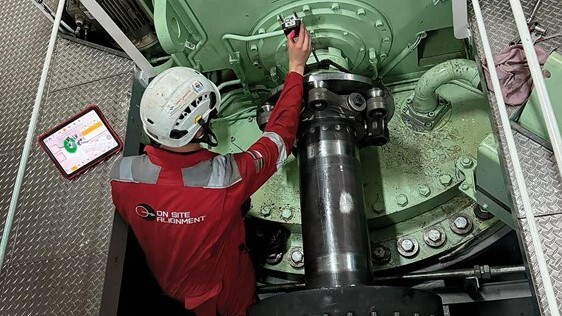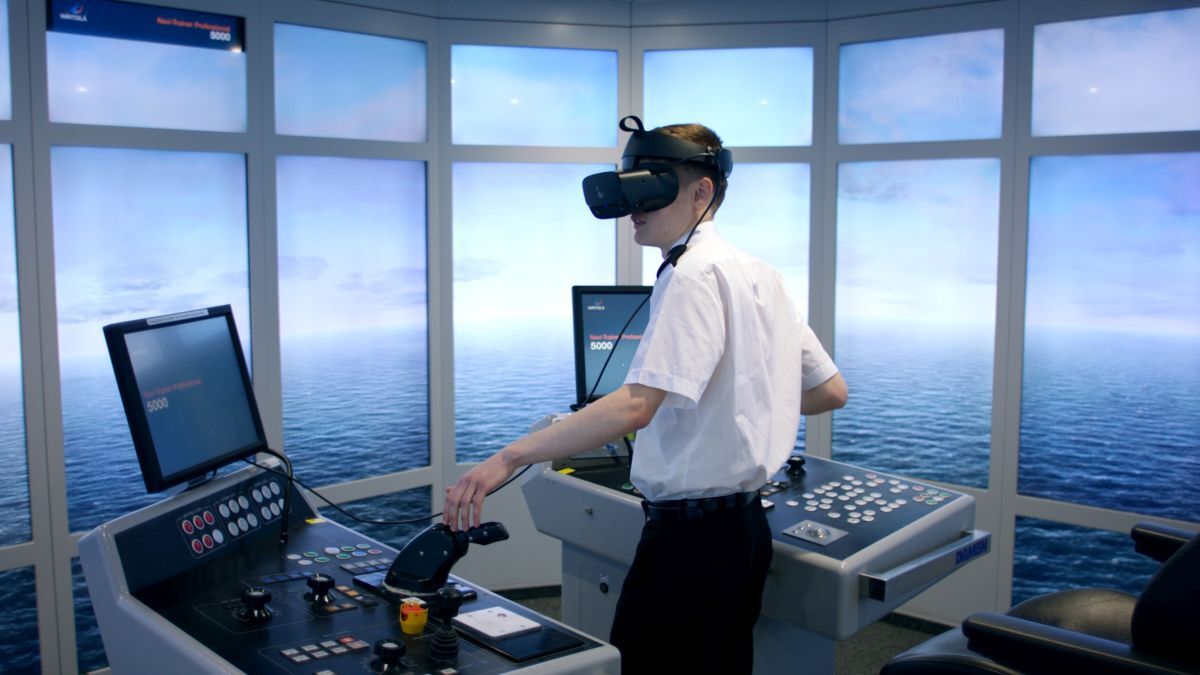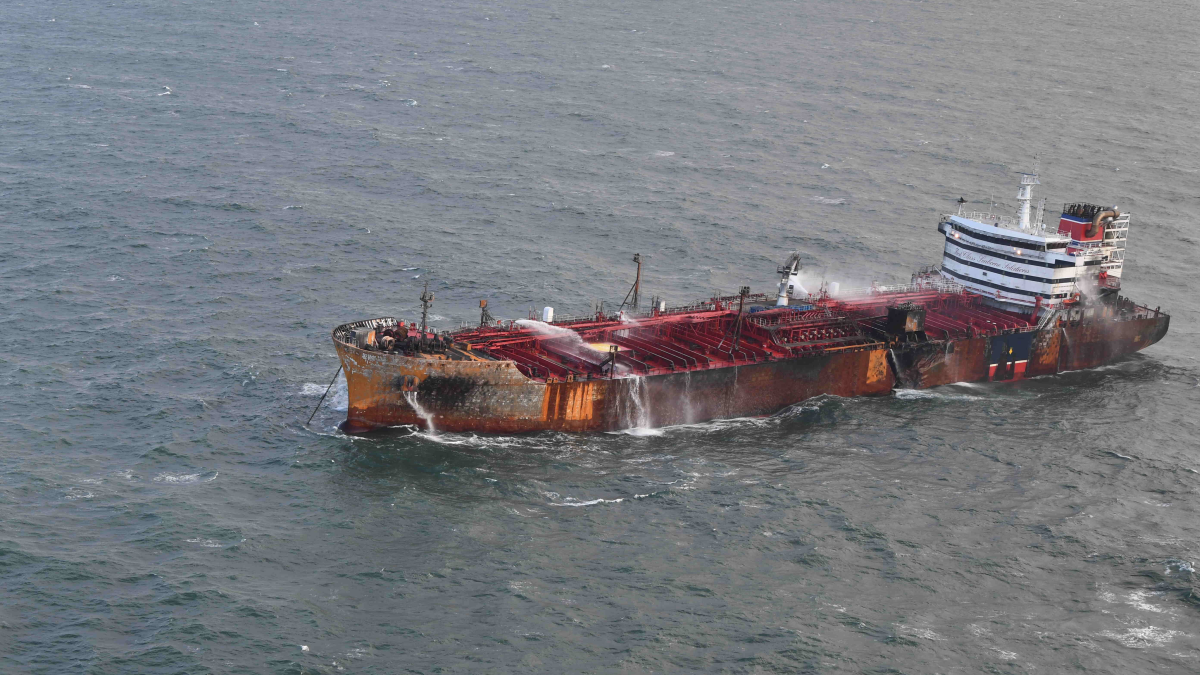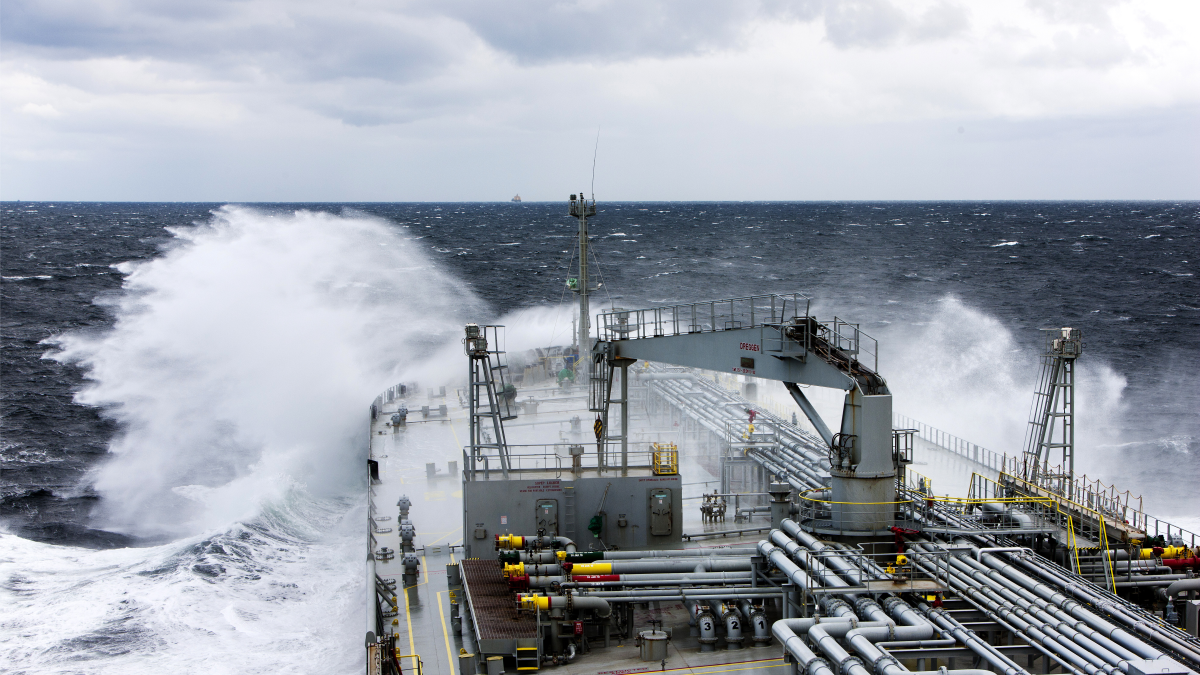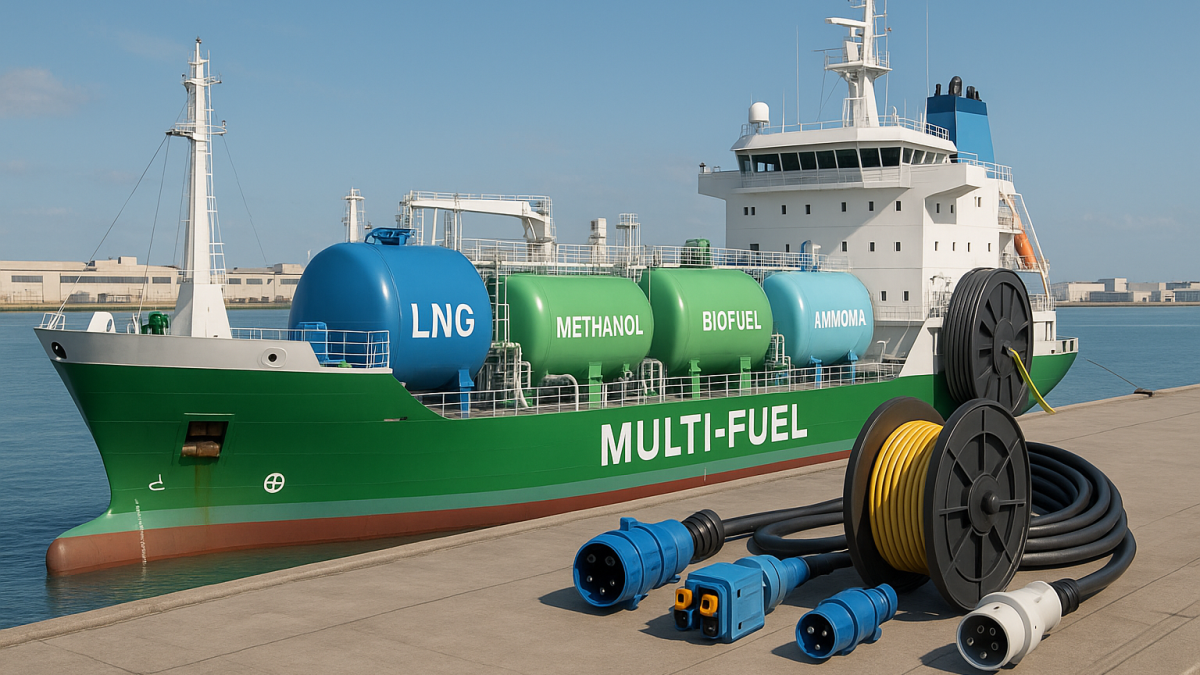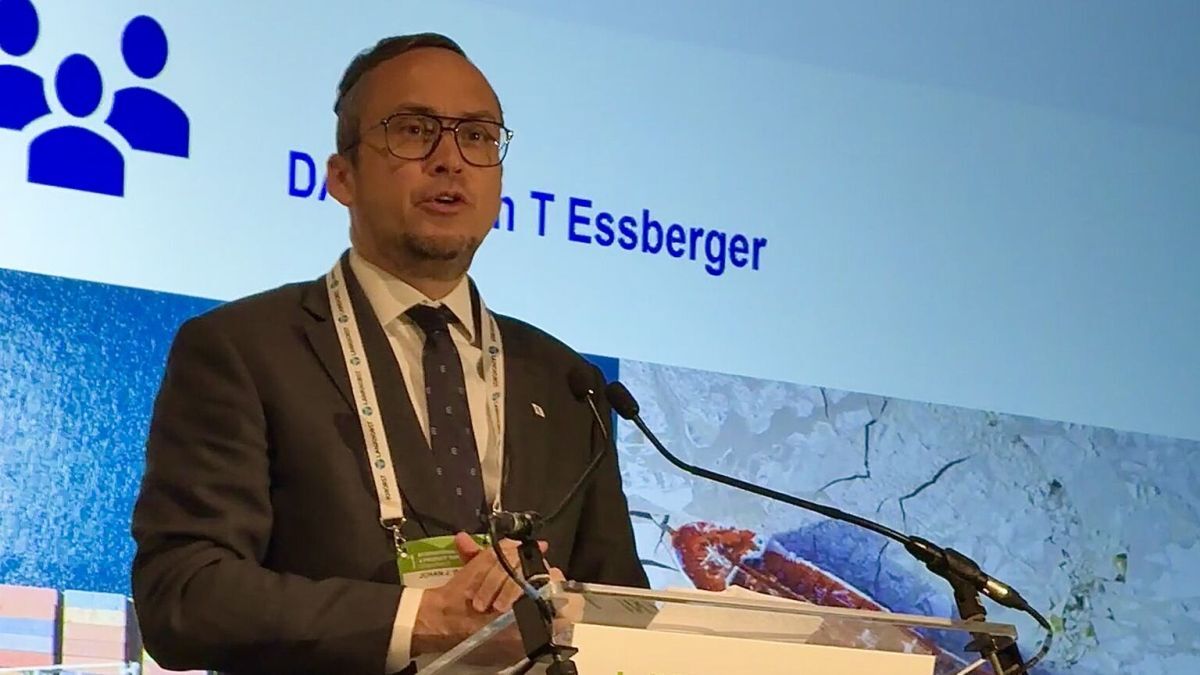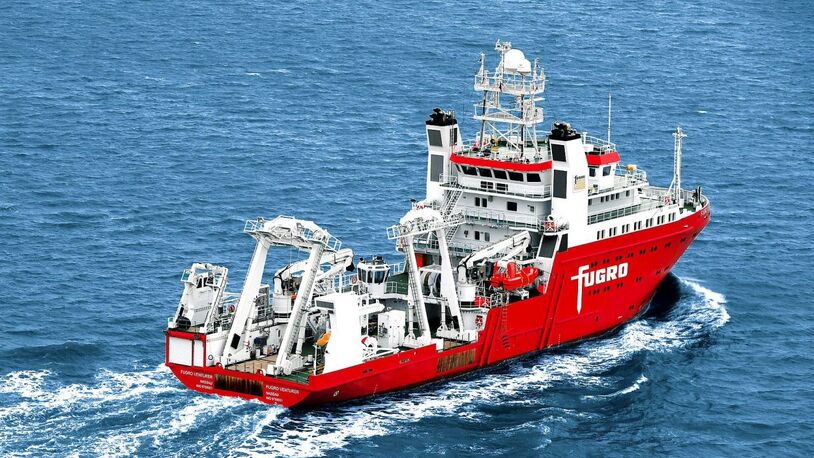Business Sectors
Events
Contents
Register to read more articles.
Virtual reality applied to tug training
Technologies for mixed realities are combined with simulators to train tug masters, pilots and ship captains
Virtual and augmented realities (VR/AR) have been developed for tugboat training at a time when vessel owners are still finding it difficult to get seafarers to academies due to Covid-19 travel restrictions. Owners are increasingly using training to differentiate their services by updating seafarer’s skills to offer highly trained crew.
Wärtsilä Voyage launched Smart Realities VR/AR simulation solutions for scalable and realistic seafarer training at the Maritime Skills Academy (MSA) in Portsmouth, UK.
On 21 April, International Tug & Salvage was given access to test simulators combining VR/AR technologies with physical simulators. During an open day, ship captains and training institutes, including the Nautical Institute, trialled their skills on the simulator suite, which included a 360º tug bridge simulator.
Wärtsilä Voyage developed this new simulator-based platform as a cost-effective, easily scalable and fully immersive extended reality for training.
Smart Realities uses less hardware than a full suite of simulators, making it more accessible for training centres, shipowners and shipmanagers worldwide, says Wärtsilä Voyage head of product, simulation and training Johan Ekvall.
He says it enables commercial training providers to increase the types of training they can offer and reduces the need for seafarers to travel to specialised academies.
MSA Portsmouth helped Wärtsilä Voyage to develop a Smart Realities version of an azimuth stern drive (ASD) tugboat navigation trainer which includes a Damen ASD tug bridge system with 360º screens and the VR headset. ITS tested this by manoeuvring an ASD tugboat, under simulation, around Southampton harbour.
“This tug simulator introduces mixed realities, including the hardware and 3D virtual visualisation, to create accessibility to practising tug operations around the world,” says Mr Ekvall. “With the headset and software there is a minimal hardware alternative for tug operations training.”
Smart Realities with a Damen ASD tug simulator can be used to train masters to navigate and manoeuvre reverse stern drive and tractor tugs. Mr Ekvall says this mixed reality set up is still being trialled by MSA and Seaways Global in Portsmouth.
This tug simulator can link with ship bridge simulators to teach and test communications and collaboration between vessel captains, pilots and tug masters in port. “Collaborative scenarios can be achieved from remote locations,” says Mr Ekvall.
The first Smart Realities training facility available is for teaching and practising ship handling. This combines the physical propulsion controls seafarers and pilots would use on ships with VR goggles and simulator software.
When trainees put on the VR headset they are immersed into a graphical representation of the ship’s bridge. In the program trialled by ITS, this was the bridge wing of a modern podded-propulsion cruise ship manoeuvring out of a terminal in Southampton, UK.
Smart Realities uses existing simulator content through unified software, ship models and sailing areas, enabling exercises to be shared between the different simulator mediums.
“We have created accessibility to training without a huge investment,” says Wärtsilä Voyage director for global simulation and training sales Neil Bennett.
“It is about getting more training with less investment, fewer resources and at lower costs. It maintains levels of realism and environments of operations.”
Sea conditions and weather can be changed in the simulator programs to test tug masters in various environments and climates. Different ship models and ports can be added to test their handling skills in harbours worldwide.
Mr Ekvall expects Smart Realities to help inspire a new generation of tech-savvy mariners into the maritime industry and enable existing mariners to develop their skills, while encountering highly realistic scenarios in a virtual risk-free environment.
“There is little doubt VR, AR and mixed reality applications will soon become an indispensable part of future training both as co-located and distributed learning,” Mr Ekvall says.
“Smart Realities solutions are an essential extension of the Wärtsilä simulation platform, using existing validated exercises, ship models and visual areas, and having all of the available instructional tools that simulation operators expect and need to achieve their learning objectives.”
MSA director of training and simulation Captain Josip Kulas says Smart Realities will add value to its training programmes.
“There is a strong focus on situational awareness and decision making. The solution creates real-life immersive environments to make a simulation of the operations performed on board any ship,” he says. “The lifelike scenarios improve learning retention, job performance and team collaboration.”
Kongsberg Digital developed K-Sim Connect to enable online connection to its simulation programs to open training to more seafarers. Its cloud-based platform hosts simulation models and packages for maritime learning. It enables masters to learn and practice handling vessels from a laptop computer with online connectivity.
Simulation applications are available for subscription on K-Sim Connect. One of the latest additions is K-Sim ECDIS for teaching use of this navigation aid. A new ECDIS navigation simulation concept was developed in close collaboration with EGGS Design and with feedback from users.
“We collaborated with instructors, students and educational institutions to build this user experience,” says EGGS Design head of maritime William Chaumeton.
“The K-Sim Connect digital platform was also built on a unified design language, system and interaction principles, allowing us to be more efficient and scalable as we continue to improve the product into the future”.
Kongsberg Digital product director for digital services Gullik Jensen says K-Sim Connect enables greater use of simulators in seafarer training. “Using K-Sim Connect has made simulator training even more cost-effective and even more accessible,” Mr Jensen says.
“This gives shipping and the maritime industries enhanced navigation training, more skilled crew and safer workplaces.”
Kongsberg Digital is providing simulator technology through K-Sim Connect to digital learning specialist Mintra for use through its Trainingportal. This enables Mintra to add practical simulation exercises to its theory-based e-learning courses for maritime and energy sectors.
Training modules are available on disciplines such as engineroom management, use of ECDIS and radar, cargo handling and route planning. Mintra is developing additional applications, covering all aspects of navigation training in depth, and expects to release them later this year.
Kongsberg Digital has also formed a partnership with the Northeast Maritime Institute in Massachusetts, US. K-Sim Connect cloud-based simulation applications were embedded within the nine e-learning courses accessible via the Northeast Maritime Online (Nemo) training, examination and certification portal. Mintra is the exclusive international market provider of Nemo courses.
ROC Friese Poort, the Netherlands has started using VStep’s Nautis training simulators to support teaching and testing of inland navigation skills. It gained regulatory approval from Dutch authorities to carry out exams on inland navigation simulators until 2024.
Government specialists tested the robustness and steadiness of the simulator and verified software included the correct vessel models, guidelines and an emergency pilot as part of the approval process.
VStep introduced version three of its Nautis maritime simulator in December 2021. This includes updates on vessels, environments and ports in the software for training and teaching inland navigation.
OneOcean and Simwave, a Dutch provider of training services and assessments, are collaborating to enhance delivery of advanced training. This will enable OneOcean’s customers to use Simwave’s catalogue of online and classroom courses for technical training on bridge, engine and cargo equipment.
International Chamber of Shipping has introduced new record books for electro-technical officers on vessels. These will help cadets and vessel operators track training and career development under flag requirements.
Riviera Maritime Media will provide free technical and operational webinars in 2022. Sign up to attend on our events page
Related to this Story
Events
Maritime Environmental Protection Webinar Week
Cyber & Vessel Security Webinar Week
The illusion of safety: what we're getting wrong about crews, tech, and fatigue
Responsible Ship Recycling Forum 2025
© 2024 Riviera Maritime Media Ltd.

